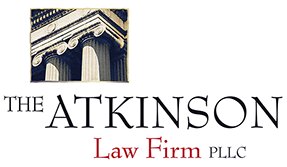Best Travel Accident Lawyers in North Carolina
Share your needs with us, get contacted by law firms.
Free. Takes 2 min.
Or refine your search by selecting a city:
List of the best lawyers in North Carolina, United States
About Travel Accident Law in North Carolina, United States
Travel accident law in North Carolina deals with legal matters arising from accidents that occur while traveling. This can include car accidents, bus or train accidents, airplane incidents, slip and fall situations at hotels, tourist attractions, and more. The state’s legal framework ensures that victims of such incidents have avenues to seek compensation for injuries, property damage, or other losses incurred while traveling within or to and from North Carolina. Whether you are a resident traveling within the state or a visitor, understanding your rights and available remedies is crucial in the event of a travel-related accident.
Why You May Need a Lawyer
A lawyer specializing in travel accidents in North Carolina can be invaluable in several scenarios, such as:
- You have suffered injuries while traveling due to another party's negligence, like reckless driving or inadequate safety measures.
- An insurance company denies your claim or offers an inadequate settlement following an accident during travel.
- The accident occurred while using common carriers such as buses, trains, airlines, or rideshare services, which involve specific regulations and liability rules.
- You are facing legal complexity due to involvement with out-of-state or international parties.
- You are being sued or accused of responsibility for a travel-related accident.
- You have experienced substantial property loss or damages during your travel in North Carolina.
Legal professionals can help clarify your rights, navigate complex liability issues, negotiate with insurance companies, and represent your interests in or out of court.
Local Laws Overview
Travel accident cases in North Carolina are governed by several key areas of law, including personal injury, insurance, and transportation statutes. Some important elements include:
- Pure Contributory Negligence Rule: North Carolina follows a pure contributory negligence standard. If you are found even 1 percent at fault for the accident, you may be barred from recovering compensation for your injuries.
- Statute of Limitations: For most personal injury claims, you have three years from the date of the accident to file a lawsuit. For wrongful death claims, it is two years.
- Mandatory Insurance Requirements: Vehicles operating in North Carolina must carry minimum insurance coverage, and insurers are regulated by state laws.
- Common Carrier Standards: Higher duty of care is expected from companies transporting passengers, such as buses, taxis, and trains.
- Reporting Accidents: Certain travel accidents must be reported to local law enforcement or relevant authorities, especially if someone is injured, killed, or property is severely damaged.
Knowing these legal foundations can help you understand what to expect and how to protect your rights after a travel accident.
Frequently Asked Questions
What should I do immediately after a travel accident in North Carolina?
Seek medical attention, report the accident to authorities, gather evidence such as photographs and witness information, and notify your insurance company. Do not admit fault or make statements that could be used against you later.
Can I file a claim if I am a visitor from another state or country?
Yes, non-residents injured in North Carolina have the right to pursue claims under North Carolina laws. Local courts have jurisdiction over incidents occurring within the state.
How does insurance coverage work in a travel accident case?
Insurance coverage depends on the circumstances, such as whether the accident involved a personal vehicle, rental car, or common carrier. Your personal or travel insurance may also apply, and coordination with multiple insurers is sometimes needed.
Who can be held liable for my injuries in a travel accident?
Potentially liable parties include other drivers, vehicle owners, transportation companies, property owners, or employers, depending on the situation. Each case requires analysis of the facts to determine liability.
What is North Carolina's contributory negligence rule?
North Carolina is one of the few states that use pure contributory negligence. If you are found to have contributed in any way to the accident, you may not be able to recover any compensation.
How long do I have to file a lawsuit for a travel accident?
Generally, you must file a lawsuit within three years from the date of the incident for personal injuries and two years for wrongful death. Missing the deadline often means losing your legal right to compensation.
Can I recover damages for pain and suffering?
Yes, North Carolina law allows accident victims to seek compensation for pain and suffering, along with medical expenses, lost wages, and other losses, provided you are eligible under contributory negligence rules.
What if the person responsible for my injuries is uninsured?
You may be able to file a claim under your own uninsured or underinsured motorist coverage if the responsible party lacks adequate insurance.
Are there special rules for accidents involving public transportation?
Yes, common carriers such as buses and trains owe a higher duty of care to their passengers. Claims against government entities may also involve different procedures and deadlines.
Do I need an attorney to handle a travel accident claim?
While legal representation is not required, having an attorney can be highly beneficial, especially in complex cases or where significant compensation is sought. A lawyer can help protect your rights and advocate on your behalf.
Additional Resources
Here are some resources and organizations that may provide assistance or information for travel accident cases in North Carolina:
- North Carolina Department of Transportation (NCDOT): Offers information on road safety and accident reporting procedures
- North Carolina Division of Motor Vehicles (DMV): Handles vehicle registration, accident reports, and licensing
- North Carolina Department of Insurance: Regulates insurers and can address questions or complaints about insurance claims
- North Carolina Bar Association Lawyer Referral Service: Connects the public with qualified attorneys experienced in travel accident cases
- Local law enforcement agencies for accident reporting and investigation questions
Next Steps
If you or a loved one has been involved in a travel accident in North Carolina, consider taking the following steps:
- Document the accident scene and your injuries as thoroughly as possible
- Seek medical attention and retain all treatment records
- Report the accident to relevant authorities and your insurance company
- Consult with a legal professional specializing in travel or personal injury law in North Carolina as soon as possible to preserve your rights
A legal consultation can help you determine the strength of your case, understand your options, and decide how to move forward. Many attorneys offer free initial consultations and operate on a contingency fee basis, meaning you typically only pay if your case is successful.
Lawzana helps you find the best lawyers and law firms in North Carolina through a curated and pre-screened list of qualified legal professionals. Our platform offers rankings and detailed profiles of attorneys and law firms, allowing you to compare based on practice areas, including Travel Accident, experience, and client feedback.
Each profile includes a description of the firm's areas of practice, client reviews, team members and partners, year of establishment, spoken languages, office locations, contact information, social media presence, and any published articles or resources. Most firms on our platform speak English and are experienced in both local and international legal matters.
Get a quote from top-rated law firms in North Carolina, United States — quickly, securely, and without unnecessary hassle.
Disclaimer:
The information provided on this page is for general informational purposes only and does not constitute legal advice. While we strive to ensure the accuracy and relevance of the content, legal information may change over time, and interpretations of the law can vary. You should always consult with a qualified legal professional for advice specific to your situation.
We disclaim all liability for actions taken or not taken based on the content of this page. If you believe any information is incorrect or outdated, please contact us, and we will review and update it where appropriate.
Browse travel accident law firms by city in North Carolina
Refine your search by selecting a city.
















